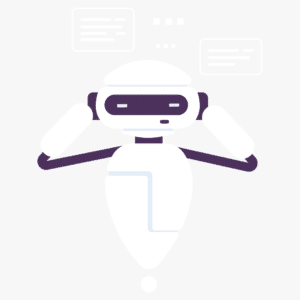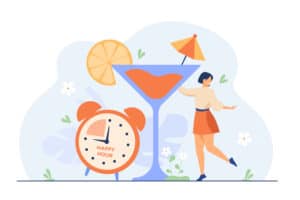
THE BOTTOM LINE:
- Your body has a powerful natural circadian rhythm that is influenced by genes, environment, age, and gender
- While most people have a rhythm that is fairly in tune with the sun’s cycles, others find it very difficult to wake up early
- Learning to work with your personal chronotype can help boost productivity, mood, and health
Chronotypes dictate your body’s natural tendency for certain sleep and wake times. While everyone has a 24-hour clock, there are differences in the peaks and troughs from one person to the next. Understanding your chronotype can help you adopt an ideal routine to optimize your peak productivity times and sleep schedule.
“When you work with your chronotype, you can sleep better at night, and feel more energized during the day.”
– Dr. Michael Breus
What causes different chronotypes?
Researchers have found that chronotype may be a result of genetic predisposition and environmental influences. Scientists hope to eventually identify chronotypes through genetic testing. Currently, there are over 30 genetic variants identified with chronotype traits like being a morning person. For instance, variants of a regulator called RGS16 have been associated with circadian rhythms by synchronizing our internal clocks. Studies have also found that a longer PER3 gene may be associated with being an early riser.
What are the different chronotypes?
There is still a lot of work that remains to be done in identifying chronotypes. As such, there is no set standard for naming them and no set number of chronotypes. Most researchers focus on morning person, night owl, and somewhere in between. Melatonin peaks have been shown to be strongly associated with chronotypes, with morning people experiencing a more rapid decline in melatonin levels after the peak than do evening types.
Dr. Breus uses four categories of chronotypes but also states that some people are hybrids. A recent study of 2283 people was able to identify six distinct chronotypes. They separated groups as:

The main thing is to find a chronotype that helps you understand your circadian profile and the natural rhythm of your energy levels throughout the day. Whether that means you are a “Dolphin” or a “Daytime sleepy type” is really just a matter of what resonates best with how you feel.
Why is chronotype important?
Knowing your chronotype is important because it helps you determine your ideal schedule for sleep and work. If you are confined by a particular schedule due to your job, you can use techniques such as light exposure and timed exercise to adapt. For extreme outliers, it may also help you understand why you feel tired all the time or have difficulties maintaining certain schedules.
Using your chronotype to optimize your schedule may also help you reduce the risk of certain diseases. Alterations to circadian timing are associated with issues such as obesity, diabetes, and psychiatric disorders.
How do I find out my chronotype?
You don’t have to go to a sleep lab to determine your chronotype. The Automated Morningness-Eveningness Questionnaire is one of the most widely used tools that assign you a chronotype score based on your preferences for evening and morning activities. If you’d like a more in-depth analysis, a fun way to determine your chronotype is by taking the chronotype quiz by sleep specialist Dr. Michael Breus. He has divided them into categories known as Bear, Dolphin, Lion, and Wolf. As an added bonus, you’ll receive awesome tips based on your profile.
Go ahead now, you can take it if you want. We’ll be waiting right here for you.
A GUIDE TO
WORKING WITH YOUR CHRONOTYPE
Working with your own chronotype is all about determining what time of the day you prefer to do certain things. For instance, if you are most energetic in the evening, you might want to avoid scheduling your most important work for first thing in the morning.
There are several factors to consider when working with your chronotype:
1. IDEAL BEDTIME
Your ideal bedtime is when you feel the sleepiest. It is important to learn how to tune into your body’s natural signals because they will alert you around the same time every day that you are tired.
For morning early birds:
Dr. Breus suggests calculating your ideal bedtime by determining your ideal wake-up time and counting backwards 7.5 hours (five 90 minute sleep cycles). Try this schedule and if you don’t wake up before your alarm, move your bedtime back 15 minutes.
For night owls:
If you have freedom in your schedule, select the time you’d go ideally like to go to bed and count forward by 7.5 hours to determine your wake-up time. If you have a set schedule, follow the process for morning people but get up as late as you possibly can.
2. CONSISTENT WAKE TIME
Keeping a consistent wake time will help you better regulate your circadian rhythm and sleep quality for all chronotypes.
3. PRODUCTIVITY TIME
Your chronotype will determine when you get energy peaks and lulls during the day. As such, you should aim to do your most productive work during those peaks. Brain fatigue and low motivation can hinder productivity during daily lulls.
For morning early birds:
Pack the early part of your day with the most important activities.
For night owls:
Especially those who have to adapt to an early person schedule can make their working lives easier by using the evening to do things like meal prep, picking outfits for the week, making schedules, and anything else that would alleviate daytime tasks.
4. USE THE LULLS
While metal energy for task completion and analytical thinking is low during lulls, creativity is still booming. Take advantage of these low-energy times to schedule tasks that require creative thought. This may be journaling, brainstorming, art, music, or creative problem-solving.
5. ADAPT YOUR SCHEDULE
Some people may have the freedom to adapt their schedule to their chronotype. If you are a night owl who is expected to work at 7am, you won’t perform as well as if you were to work at 9:30 or 10:00. Talk to your employer or team about shifting your schedule or try working remotely for people in a different timezone.
6. STRATEGIZE ACTIVITY
Your exercise schedule can further cause circadian misalignment if it’s not done strategically. Exercising at night can make it difficult for some people to fall asleep. As a general rule, night owls should try and exercise in the morning as it can alleviate circadian disruption. In fact, all chronotypes benefit from morning exercise but in-between types may find that their performance is better in the afternoon. Don’t get too caught up on chronotype and exercise schedule, the most important thing is getting exercise done.
7. EAT FOR YOUR CHRONOTYPE
People who have a propensity to be night owls may often skip breakfast and eat the majority of their meals in the evening. Unless you are using an intermittent fasting schedule, this pattern may be associated with overeating before bed, which can be disruptive to sleep. In order to improve health markers like body composition and sleep, try being regimented in daily eating schedules and have caloric meals earlier in the day.
8. TRY LIGHT THERAPY
Exposing yourself to bright light upon awakening can help boost wakefulness-promoting hormones. Night owls may especially benefit from morning walks, lightboxes, or merely spending 10 minutes in the sun first thing in the morning to improve circadian timing and induce circadian phase shifts.






